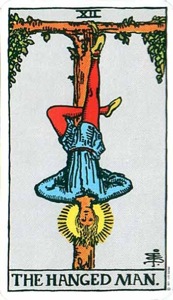Who was the German philosopher and mathematician writing in the late 19th and early 20th century, who explored the philosophical foundations of mathematics and logic and argued against theories that would reduce mathematics, logic, or meaning to psychology? He posited a theory of meaning dependent on both the reference and a non-psychological, non-representational, objective “sense” or “intentional content.” — If you said Frege or Husserl, you would be correct.
Who was the early-mid 20th century German philosopher who was heavily influenced by neo-Kantianism and Husserl, who wrote early work on logic, highly praised Frege and Nietzsche, and worked towards the overcoming of traditional metaphysics, which he argued had become an obstacle to philosophy? — If you said Carnap or Heidegger, you would be correct.
Which early-mid 20th century philosopher theorized the radical finitude of human beings, the limits of reason, the impossibility of reducing language to a set of rational rules or finding unshakeable philosophical foundations for our thinking? Who argued that philosophy is often confused because it begins from an intellectualized, theoretical position rather our everyday involvement with the world? — If you answered Heidegger, Wittgenstein, or Dewey, you would be right.
Which thinker sharply criticized the obscure jargon of Heidegger and his followers as an abuse of language, and one with problematic political consequences? — Yes, if you said Carnap or Adorno, you are correct.
These overlaps and connections hint at the possibility that the “analytic/continental” divide, which has loomed large in our understanding of 20th century philosophy and into the present, has been exaggerated, or at least that its nature has been misunderstood. Relatedly, Bernard Williams has referred to the analytic/Continental divide as “a strange cross-classification — rather as though one divided cars into front-wheel drives and Japanese.” It raises the question of whether the divide is part of a philosophically respectable categorization scheme, or a coherent narrative, for understanding our discipline.
I will here sketch a brief argument that there is not and has never been a genuine philosophical divide between analytic and Continental philosophy. That is not to say that there is not some kind of sociological or political divide; only that the characterization of that divide as having some serious grounding in disagreements about philosophical methods or views is a mistake, a kind of false consciousness or ideology.
The purported divide is not a dichotomy
Throughout the entire period, there have been practicing philosophers who are neither fish nor fowl: pragmatists, Whiteheadian process philosophers, liberal naturalists, traditionalists, etc. For a distinction that is meant to divide the discipline, there are an awful lot of philosophers who fall between or sit aside from the distinction.
Indeed, I myself do not identify with either. My undergraduate training in philosophy was in a very small program with a traditionalist historian of philosophy, an avowed pragmatist, a couple of philosophers of science with no sympathy for traditonal analytic methods, and a physicist with a fascination with Whitehead and Buddhism. My graduate program certainly had self-identified analytic faculty, but many of the faculty were traditional historians of philosophy or considered themselves post-analytic, post-empiricist naturalists, Marxists, or bridge-builders who explicit embraced ideas across the divide.
Neither side of the divide is a unified thing
Neither analytic nor Continental philosophy has any (philosophically substantive) identity. Neither term was a self-identification at first — “analytic philosophy” was a term first posited by traditionalist and non-analytic American philosophers to describe a foreign phenomenon (some friendly, some hostile). Similarly, British philosophers started referring to “continental philosophy” largely to distinguish themselves from a form of philosophy to which they were hostile. What family resemblances do bring larger aspects of each “side” together are also not sufficient to include and exclude everything appropriately. (Popular reference to different readings of Kant or emphases on the first vs third Critique captures relatively little of either side.)
On the analytic side
Analytic philosophy historically included approaches as disprate as Cambridge realists, logical atomists, logical empiricists, ordinary language philosophers, among others. And all of these former schools are moribund; there is even less uniting the contemporary work of supposedly “analytic” philosophers. “Analytic” has become a term of either abuse or affiliation, depending on who is using it, for most of what is currently popular in mainstream philosophy.
On the Continental side
Continental philosophy supposedly includes German idealists, phenomenologists, existentialists, hermeneuticists, Marxians, critical theorists, speculative realists, and more. (Though not all of them, for some Marxists, phenomenologists, scholars of German idealism, etc. are considered “too analytic.”) The schools have little in common and are at odds with each other as much as with any analytic approach.
Analytic and Continental philosophy, even if they exist, are not divided
The two supposed traditions share the same origins in late 19th and early 20th century debates concerning anti-psychologism and neo-Kantianism. The major founding figures of each tradition were in dialogue and influenced one another, and there have been many exchanges (some fruitful, some less so) over the years.
The sense of unbridgeable divides is typically the result of honest misunderstandings and bad faith misrepresentations in these exchanges, rather than substantive philosophical differences. Where those differences exist, they are not more significant than “internal” disputes within the supposed traditions.
For example, many (not all) analytic and Continental philosophers take some version of the linguistic turn, a point that distinguishes them from most other philosophers but not from each other. Indeed, in this and many other ways, analytic and Continental philosophy are more like each other than they are like other forms of philosophy. Another example would be their anti-naturalist origins, where the founding “analytic” and “Continental” figures took essentially the same positions in the Psychologismusstreit.
The divide is increasingly porous
Today, there is significant traffic across the supposed divide. To name just two examples: (1) the influence of phenomenology in analytic philosophy of mind; (2) the influence of Sellars on continental realism. Such mutual influence has only been for the better. To whatever extent a divide ever existed (sociologically), today it is only a roadblock to better philosophy.
Why does it matter?
The divide obscures our understanding of the history of philosophy
As historians of philosophy like Michael Dummett, Andreas Vrahimis, Abraham Stone, and Carl Sachs have shown, there are significant interactions, influences, connections, and encounters between figures across the analytic/continental divide. Setting up the divide, and treating as if it is something that has been with us for centuries (since Kant or even before, as some would have it), only serves to obscure those connections. Accurate reading in the history of philosophy requires awareness of context. If you are reading Husserl and Heidegger, but not Frege and Carnap, you don’t really understand what Husserl and Heidegger are up to.
What’s more, the sociological divide at its earliest is a mid-twentieth century phenomenon, but it is often read backwards to inflect readings of earlier thinkers. Our understanding of figures like Kant, Hegel, and Marx becomes distorted by anachronistically reading contemporary concerns and divisions into their work.
Partisanship to the divide narrows who we read and who we teach in a harmful way
The divide has created separate canons of philosophy, who is read and taken seriously. The more our education hews to the divide, the more blinkered the canon becomes. This is especially harmful when we think about figures (Cassirer, Dewey, Whitehead) who are outside the divide.
The divide hinders progress in philosophy
Some of the truly groundbreaking and impactful work in philosophy has bridged the divide, drawing on both “sides”. This work is harder so long as students are discouraged from reading across the divide and work that engages across the divide meets with hostile boundary police.
So why did we believe in the divide?
If there is not and never was a genuine philosophical divide, why did we think there was? Any argument of this sort owes an explanation. Here are a few possibilities:
- The perceived relation between German national identity and German philosophy in light of the World Wars, due to flat-footed Anglophone critiques.
- The impact of Nazism on Jewish and socialist philosophers in Continental Europe, many of whom resettled in the Anglophone world.
- Differing perceptions of Heidegger’s Nazism and its separability from his philosophical insights.
- The professionalization of philosophy and different reactions to it by different groups of philosophers.
- The Cold War & McCarthyism undoubtedly played some role, marginalizing certain traditions and transforming others (though sometimes this role has been overplayed or its significance misunderstood).
- The reception of relatively marginal French philosophers in prominent British/American literary theory circles.
- Misunderstandings as a result of philosophers of different languages or writing in different styles talking past one another.
- Institutional trauma working post hoc to reify a sociological divide by rationalizing it into a significant philosophical divide.
These are sketch answers, but worth considering further.





